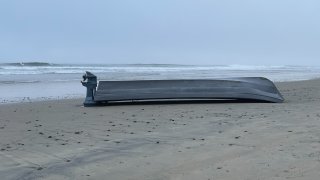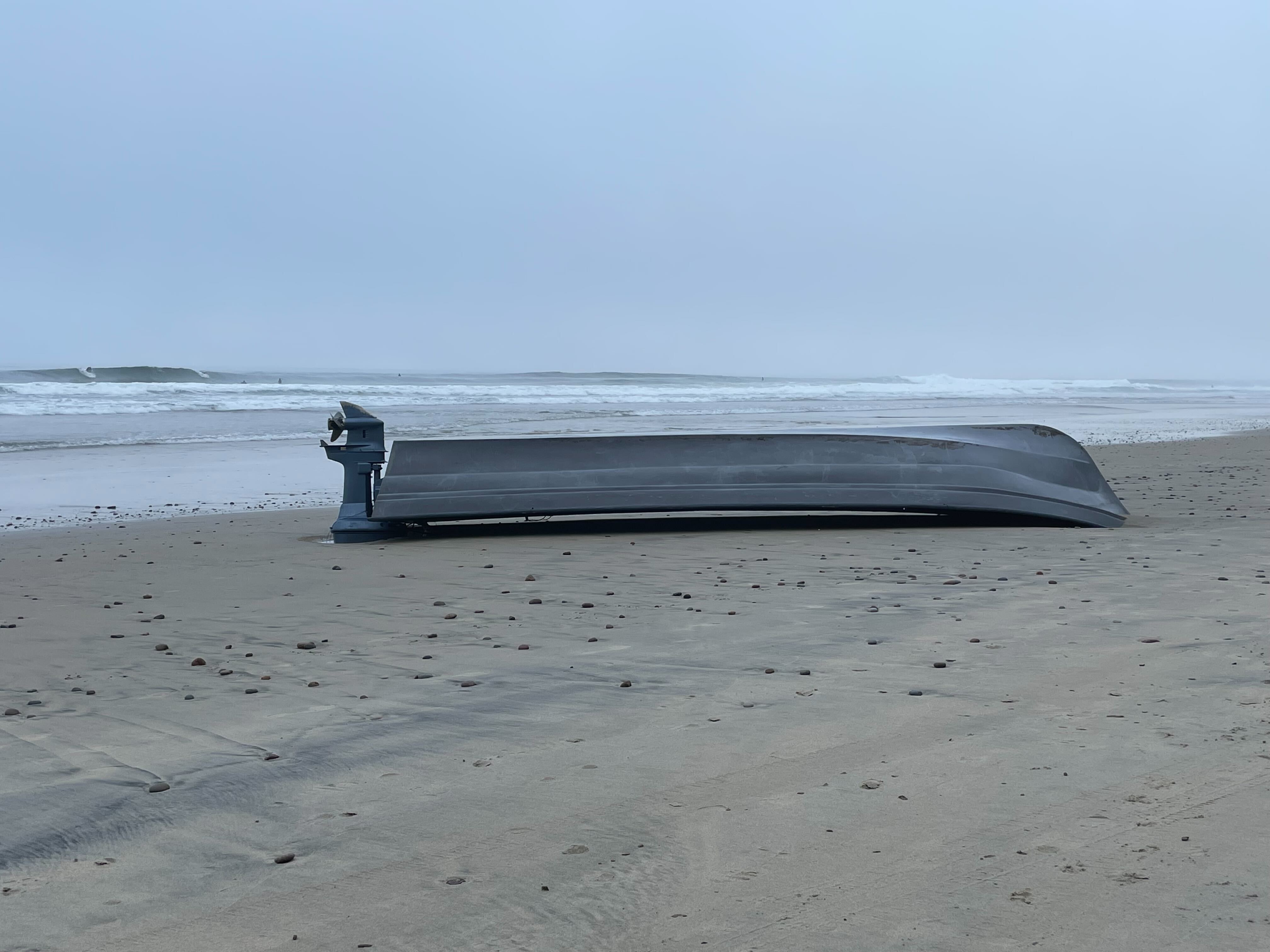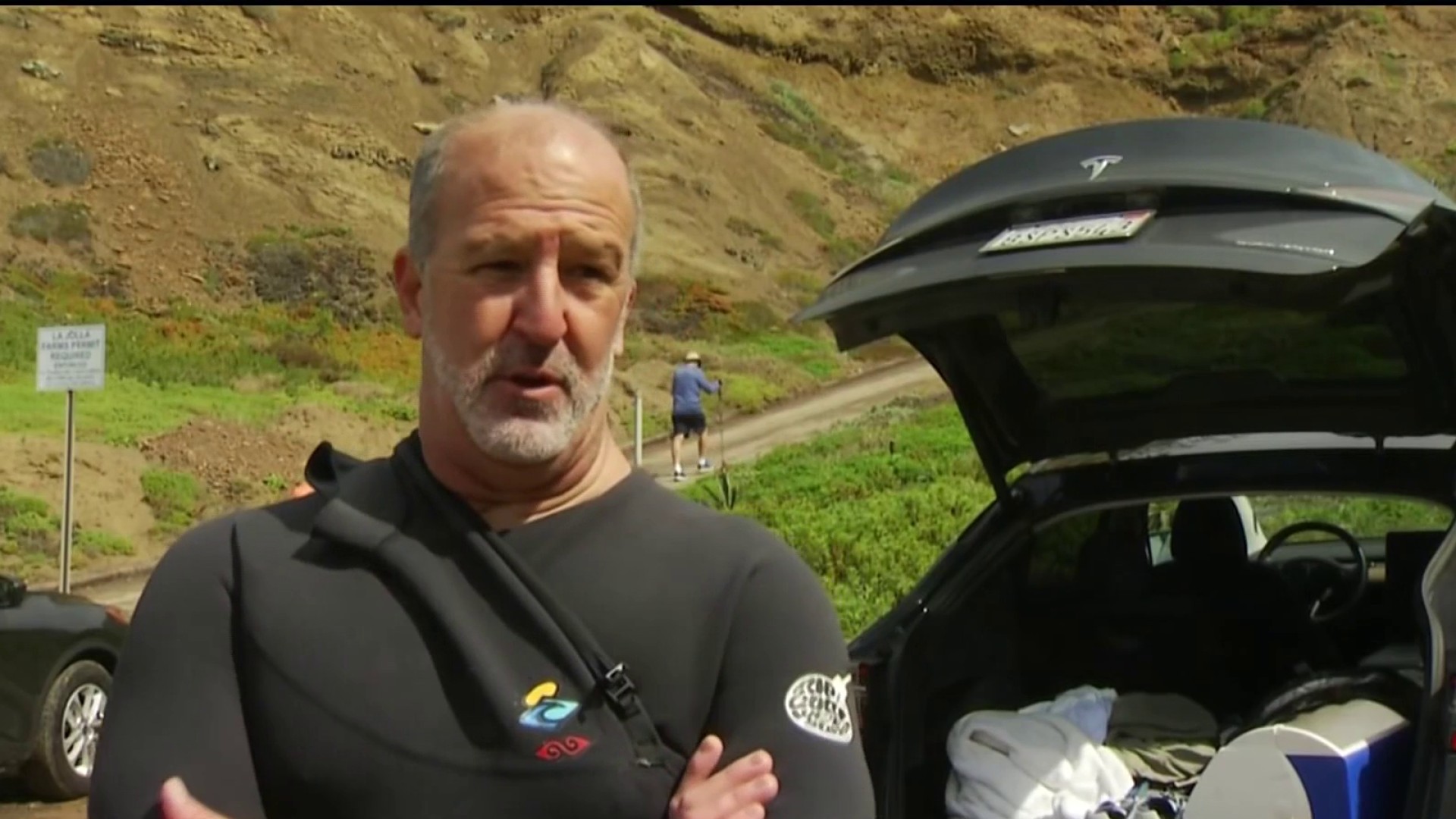
The San Diego County Medical Examiner's Office Tuesday identified three of the eight people who died when two alleged smuggling boats capsized Saturday off Black's Beach in the Torrey Pines area.
According to the county, the victims were Eloy Hernandez-Baltazar, 48; Yecenia Lazcano-Soriano, 22; and Guillermo Suarez Gonzalez, 23.
The coroner's office listed drowning as the cause of death for all three. An official report stated that the "place of death" for Gonzalez was the ocean, and the beach for Hernandez-Baltazar and Lazcano-Soriano. There was no information on where the victims resided previously.
Deadly Capsizing off La Jolla
Get San Diego local news, weather forecasts, sports and lifestyle stories to your inbox. Sign up for NBC San Diego newsletters.
On Monday, the local Mexican consulate general's office announced it believes that seven of the eight people who drowned off the San Diego County coast were Mexican nationals, based on the identification some of them carried.
No identification has been made for the remaining five victims. According to an email, the Medical Examiner's Office is working with the Consulate General of Mexico "to identify and notify the families of all the deceased."
At a Sunday morning news conference, San Diego Lifeguard Chief James Gartland said an unknown person who spoke Spanish called San Diego dispatch and told them about the two vessels, holding a total of 15 people, overturning. However, a spokesman with the U.S. Coast Guard told NBC 7 on Monday that lifeguards saw the boats before the 911 call came in alerting about the impending danger.
Gartland said no survivors had been found and added, "We lost eight souls."
Coast Guard spokesman Adam Stanton said Monday that search efforts were suspended at 4 p.m. Sunday.
In a statement, the Consulate General of Mexico in San Diego said it "deeply regretted this tragedy" and "as soon as there is confirmation from the coroner's office in this regard, it will be informed to their relatives."
Carlos Gonzalez Gutierrez, the consul general of Mexico in San Diego, on Monday thanked the U.S Coast Guard for its search-and-rescue efforts. He also asked migrants to avoid putting their lives at risk.
"People planning to cross the border into the United States, either by land or sea, should know that human smugglers will take advantage of their need in order to obtain illicit money, distorting reality, creating false expectations and exposing them to high-risk conditions where they may lose their lives," Gutierrez said.
According to the Consulate General's office, those seeking information on missing relatives may contact the consulate's emergency line at 619-843- 6399 or proteccion@consulmexsd.org, or contact the Center for Information and Attention to Mexicans (CIAM) in the United States at 520-623-7874.
U.S. Coast Guard officials got a call from the San Diego Police Department at 11:35 p.m. Saturday about a boat landing on Black's Beach, Stanton told City News Service.
Thick fog slowed rescue efforts, but Coast Guard and San Diego Fire-Rescue crews searched the water for potential survivors or victims on Sunday.
Lifeguards "did the best we could to recover people from the water, trying to find survivors," Gartland said Sunday.
After an hour of searching for survivors, "we were in recovery mode for five hours after that," said Gartland, adding that access was difficult due to the tide and coastal cliffs.
Gartland said some boat passengers "may have left the beach, we're not sure." He said both vessels were capsized and inside the shoreline when first responders arrived on the scene, which was hazardous due to sand bars and in-shore rip currents.
He explained that long in-shore holes can cause rip currents to pull people back out to sea, adding that surf conditions on Saturday night were only a 3-foot swell.
"This is one of the worst maritime smuggling tragedies that I can think of in California, certainly here in the city of San Diego," Gartland said.
"This is not necessarily people trying to find a better life," said Capt. James Spitler, sector commander for the U.S. Coast Guard San Diego. "This is part of a trans-national criminal organization effort to smuggle people into the United States. These people are often labor-trafficked and sex- trafficked when they arrive."
San Diego Fire-Rescue officials said the lifeguard dispatcher used GPS coordinates from the reporting party's cell phone to establish a location, about 800 yards north of the base of Black Gold Road. The first lifeguard unit to arrive couldn't access the beach due to high tide and headed north, wading through knee- to waist-deep water.
"After a couple hundred yards, lifeguards on the beach reached dry sand and then began to find lifeless bodies and two overturned pangas spread over an area of about 400 yards," the SDFD stated. "The first lifeguards on scene triaged a total of seven bodies -- all were deceased."
Lifeguards pulled the victims from knee-deep water and the waterline, and onto dry sand. Federal and military responders found the eighth body, the SDFD said. Authorities also found several life jackets and fuel barrels, according to the SDFD.
Black's Beach is a secluded section of beach beneath bluffs in Torrey Pines on the Pacific Ocean in La Jolla, San Diego.
There are reasons people are making the risky journey, immigration attorney Brian Lopez said.
"A lot of the common themes we find are people are escaping dire conditions which could pose a threat to their lives or the lives of their loved ones. it could be based upon persecution for their political beliefs, it could be because the area where they live in their home country is overrun by criminal elements that the government is unwilling or unable to control. There could be any number of factors," Lopez said.
Lopez said he sees no end in sight for panga boat smugglings.
"I think we are still going to see unfortunate incidents like these whether they occur on the shores, or in a remote desert area, but the issue is not going to go away," Lopez said.



